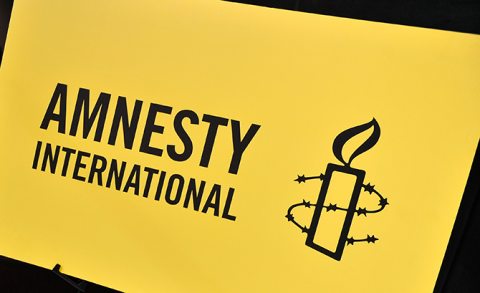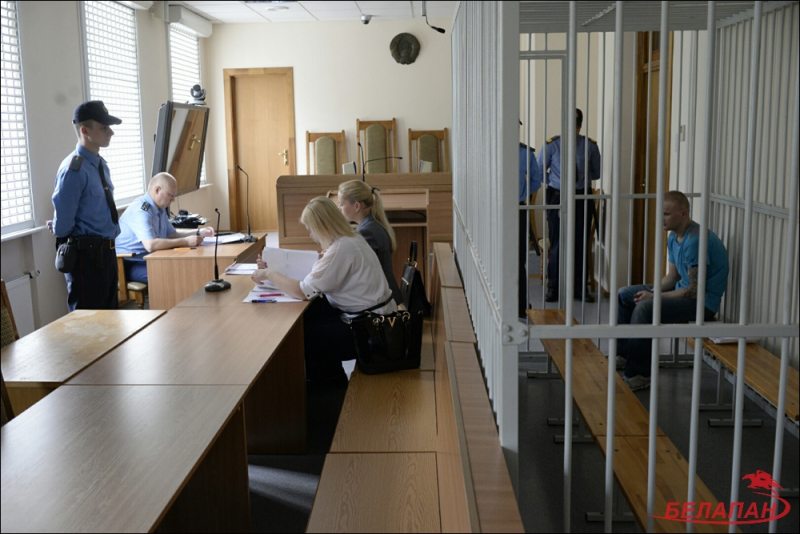UNHRC confirms multiple violations in case of executed prisoner Aliaksei Mikhalenia
The United Nations Human Rights Committee has released its Views adopted in the case of Aliaksei Mikhalenia, a death row prisoner executed in May 2018. The Committee concludes that that Mikhalenia’s right to life under article 6 of the Covenant was violated, since he was sentenced to death after an unfair trial.
The author of the communication submitted on January 30, 2018 is Arkadz Mikhalenia, Aliaksei Mikhalenia’s father. The document was prepared by human rights activist Andrei Paluda, coordinator of the campaign “Human Rights Defenders Against the Death Penalty in Belarus”. At the time of submission, he was detained on death row awaiting execution, which was eventually enforced despite a request for interim measures by the Committee.
The Views stress that the State party has violated several fundamental rights under the Covenant.
In particular, Belarus violated article 9 (3) of the Covenant, since Mikhalenia was not brought promptly before a judge or other officer authorized by law to exercise judicial power. In fact, he was apprehended on 5 March 2016 and was officially notified of his placement in pre-trial detention by a prosecutor on 10 March 2016, but was not brought before a judge until 8 February 2017.
The Committee considers that the facts as presented demonstrate that the right of the author’s son to be presumed innocent, as guaranteed under article 14 (2) of the Covenant, was violated. He was handcuffed and kept in a cage during the court hearings. He also wore special clothing for death row inmates, before the sentence had entered into force.
The Committee further notes that the defendant’s right to call, obtain attendance of and examine witnesses were violated by the fact that several forensic experts provided testimonies during the investigation, but were not called or questioned in court. These included the experts that provided key examination results, such as reports on a DNA analysis, autopsy results, and examination of blood spots.
The Committee also concludes that by not respecting its request for interim measures, the State party violated its obligations under article 1 of the Optional Protocol.

Amnesty International: Aliaksei Mikhalenya at risk of imminent execution
On 1 February 2018, the Committee, acting through its Special Rapporteur on new communications and interim measures, decided to grant interim measures under rule 94 of its rules of procedure and requested the State party not to carry out the death sentence of the author’s son while his case was under examination by the Committee. On 17 July 2018, the Committee received information to the effect that the author’s son had been executed despite the request for interim measures. On 19 July 2018, the Committee, also acting through its Special Rapporteur on new communications and interim measures, requested urgent clarification of the matter from the State party, drawing the State party’s attention to the fact that failure to respect interim measures constituted a violation by States parties of their obligations to cooperate in good faith under the Optional Protocol. No response to this request has been received to date from the State party.
The Committee reminds that the State party is under the obligation to provide adequate compensation to the author for the violations that his son suffered. The State party is also obligated, inter alia, to take all steps necessary to prevent similar violations from occurring in the future.
“This is yet another decision by the Human Rights Committee, which not only highlights violations of numerous rights, but, very importantly, a violation of the right to life. The numerous procedural violations during the investigation, disregard for international treaties and the execution of Mikhalenia before the Committee considered his complaint prove once again that Belarus never complied and is not going to comply with its international obligations, let alone its human rights commitments undertaken domestically,” Andrei Paluda said.
The anti-death penalty campaigner stresses that the Belarusian society will continue to bear the burden of “murder on behalf of the state”, despite the recent pardon of the Kostseu brothers and the relatively positive rhetoric of the authorities regarding the abolition of the death penalty in the first half of this year.


